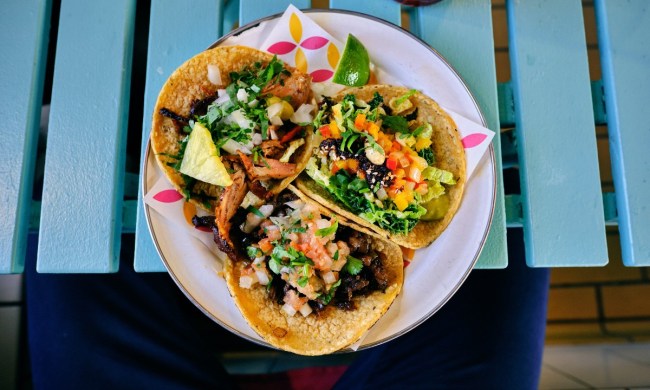A healthy gut is an essential part of a healthy day, and digestive issues, like bloating and constipation, aren’t just pesky. They’re painful problems that limit our ability to socialize, enjoy our favorite foods, and focus at work. A healthy gut also has a significant impact on your sleep quality. For example, if you ate something for dinner that doesn’t sit well, you and your stomach will be tossing and turning all night.
Diet is just the tip of the iceberg when it comes to gut health and sleep, though. The naturally occurring bacteria in your belly also play a huge role, so let’s dig into the most pressing questions about gut health and sleep.

How does good gut health lead to quality sleep?
Living microorganisms in your gut, known as probiotics, fight diseases like Type 2 diabetes and heart disease, and they also might play a role in getting a good night’s sleep. During an eight-week study, one group of Japanese students took a daily probiotic, and the other took a placebo. The group that took the daily probiotic reported better quality sleep at the end of the eight weeks than the control group.
Our gut’s microbiomes also play a role in producing sleep-regulating hormones, including melatonin, serotonin, and dopamine, so a healthy gut might mean more shut-eye for you every night.
How does bad gut health interrupt the sleep cycle?
Not all gut bacteria are good for you. Scientists are still researching how gut microbiome diversity affects sleep, but one 2019 report found that the presence of some organisms (Lachnospiraceae, Corynebacterium, and Blautia) negatively impacted rest. This is why it’s important to load up on good bacteria to give your gut a fighting chance.
People with digestive issues, such as irritable bowel syndrome (IBS) or gastroesophageal reflux disease (GERD), are also more likely to struggle to achieve uninterrupted sleep. Logically, it follows that if you’re running to the bathroom every few hours, it’s impossible to stay asleep.
That said, lack of sleep may lead to other poor health outcomes, such as obesity and high blood pressure, so talk to your doctor if you need help with digestive issues like IBS or GERD or have trouble sleeping in general.

What foods are good for my gut?
One of the best ways to improve gut health is through your diet. Here are a few gut-cleaning foods to stock you’re pantry with next time you make a grocery run.
- Fruits like apples and oranges are full of vitamin C, which helps clear your colon. It also contains fiber to ease the digestive process.
- Fermented foods such as Greek yogurts boast probiotics that increase the good bacteria in your gut and promote a strong digestive system. If yogurt isn’t your thing, try Kefir or tempeh instead.
- Whole grains (think whole wheat pasta, brown rice, and bread) have tons of fiber that bolster gut health and keep you feeling fuller longer. This prevents overeating, which can cause heartburn and an upset stomach.
What else can I do to improve gut health?
Diet is an important tool in improving gut health, but there are other measures you can take while continuing to eat well.
- Try a daily probiotic supplement. If you aren’t a fan of probiotic-rich foods like yogurts, you can opt for a supplement. Speak to a healthcare professional before adding any type of additive to your diet, as they can make sure it’s the healthiest decision for you.
- Exercise. Moving around can kickstart the digestive process and prevent issues like constipation.
- Stress less. Experts share that stress and anxiety can lead to a poor gut-brain connection, resulting in digestive issues like IBS. If you’re struggling, consider talking to a friend, family, or therapist to work through concerns with your mental health.
- Drink plenty of water. Water helps food move quickly and easily through the digestive system, reducing issues like constipation.
- Nix artificial sweeteners. Artificial sweeteners may alter your gut microbiota and affect blood sugar. It’s best to steer clear of these if you’re handling any sort of gastrointestinal distress.
The key to getting better sleep may reside in your gut. Scientists are still looking into the question, “Does gut health affect sleep?” but early research suggests a fairly strong link. These are just a few general tips to get you started but don’t hesitate to talk to your doctor if you’re struggling with sleep, stress, or gut health. They can provide you with the resources you need to start feeling and sleeping better.
BlissMark provides information regarding health, wellness, and beauty. The information within this article is not intended to be medical advice. Before starting any diet or exercise routine, consult your physician. If you don’t have a primary care physician, the United States Health & Human Services department has a free online tool that can help you locate a clinic in your area. We are not medical professionals, have not verified or vetted any programs, and in no way intend our content to be anything more than informative and inspiring.



